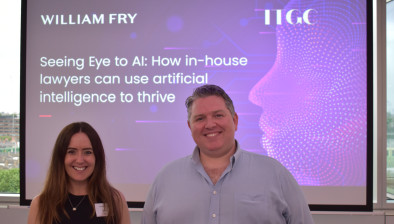Irish in-house lawyers overwhelmingly satisfied in their roles

Derek Hegarty
Irish in-house lawyers show high levels of job satisfaction, optimism, and ambition, according to a new report.
A survey carried out by KPMG Law LLP for its new general counsel outlook report found that 93 per cent of in-house counsel in Ireland find their roles both personally and professionally satisfying.
Two-thirds have a positive outlook on career progression, with 84 per cent believing their roles significantly contribute to the growth and development of their organisation.
The survey also found a strong preference for hybrid working, with 76 per cent expecting to work from home two to three days a week.
The vast majority (85 per cent) of respondents also said they plan to increase their use of AI over the next three years, balancing efficiency gains with concerns over data security and regulatory compliance.
However, 73 per cent also have apprehensions regarding the accuracy of generative AI tools in legal applications.
Nevertheless, around two-thirds (65 per cent) of respondents are optimistic that AI will enable them and their teams to concentrate on higher-value workloads, and two in five acknowledge that AI has significantly improved the efficiency of legal research.
Nearly eight in 10 (79 per cent) of respondents believe that compliance with regulations will be a significant challenge over the next three years, in addition to managing cyber threats and providing non-legal strategic advice.
Derek Hegarty, partner at KPMG Law LLP, said: “The traditional legal sector of old is long gone. Today we have a profession that is changing rapidly, with technology advancements and hybrid-working offering a dynamic and rewarding career.
“The satisfaction, ambition, and optimism of in-house counsel in Ireland are promising signs for the future.
“As new regulations are developed to tackle emerging threats, general counsels need to be agile and resilient. Using AI and other technology effectively will be crucial in managing these complexities.”










